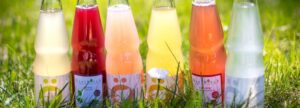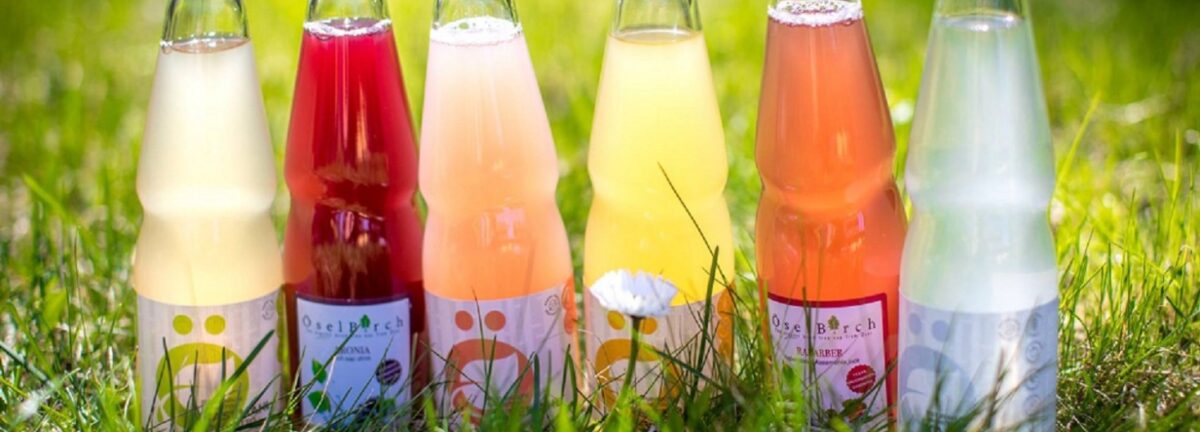Birch juice has been consumed in Estonia for hundreds of years but now the Saaremaa family company Öselbirch in cooperation withCenter of Food And Fermentation Technologies has developed a lemonade, based on birch juice.
When thinking about birch juice, a lot of people are reminded of fresh spring days with grandparents and drinking birch juice directly from the tree. By regions, it was also customary to ferment the sap or use it to produce birch kvass to avoid the expiring of the drink but mostly birch juice was consumed freshly in spring. Those who had large enough freezers at home, stored the drink in bags, so they could enjoy the ancient vitality drink in the summer as well.
Öselstuff OÜ (the company distributes drinks under the name of “ÖselBirch”), the family company of Saaremaa, is exactly one of those happy families who grew up with birch juice – in spring they would drink it freshly and in summer as a light ale, that is, in a fermented form. Since one can find more and more sodas at stores, which are either high on sugar or vice versa, in which sugars have been replaced with other sweeteners and additionally, the ingredients include substances which are unknown to regular consumers, then the representatives of ÖselBirch turned to the Center of Food and Fermentation Technologies, with a desire to develop a soda drink based on birch juice which would include only fresh organic ingredients and no artificial flavourings or preservatives.
According to the co-founder of ÖselBirch, Anne-Liis Theisen, the company wishes to offer its clients birch juice drinks with different flavours in which the taste of birch juice as the main ingredient has to be recognisable: “That is why the product category as “juice” might be misleading for some because even though it is birch juice, then as for the nature and flavour of the drinks, they are rather beverages similar to flavoured waters.”
Different flavourings and sweeteners were tested In the framework of product development
The flavourings of birch juice drinks available on the market already were eliminated on the basis of market-study and flavours which could be included in the new soon to be developed drinks were selected together. One of the main wishes was to highlight the Nordic origin of the product which is currently a significant trademark in Europe and the rest of the world. The effect of blackcurrants, chokeberries and buckthorns on the sensory characteristics of birch juice drinks and the technology of production was studied.
In addition to Nordic drinks, there was also a desire to develop a ginger-flavoured drink since ginger has many-sided benefits. For producing the drink, the use of ginger syrup, ginger juice and ginger seeds as flavourings were assessed. For various reasons, the use of a brew made of fresh gingers turned out to be the best solution.
Additionally, drinks based on fermented birch juice were developed cooperatively. The company was already previously distributing naturally fermented birch juice and wished to develop a drink based on it, which is similar in taste with a drink known everywhere in the world – Mojito, but is non-alcoholic, and has an interesting shade of fermented birch juice flavour.
Refined sugar was wished to be avoided in the selection of sweeteners for the drinks and therefore, it was agreed on testing out honey, stevia and different raw cane sugars. A mutual decision was made to proceed with different variations of honey and Demerara raw cane sugar. Thereby, it was important that the amount of sugar would not exceed 5 g per 100 ml.
The developed recipes were taken to an industry test in order to assess the impact of technology on the characteristic of a product and to test out the compatibility of the recipes with large-scale production. In order to offer an alternative to conventional lemonades, recipes of drinks which were tasty, aromatic and looked good were the result of thorough tests.
Crowdfunding helped to produce The first ÖselBirch drinks
By now, Öselbirch drinks are available in a number of shops, cafes, restaurants and hotels all over Estonia, thanks to a successful international crowdfunding which the company used for launching production. On the international platform Kickstarter.com, more than €24,000 was summoned from 11 different countries, including the USA, Canada, South-Africa and also, of course, many European countries. In the framework of the crowdfunding project, many contacts were made with foreign countries, where the company plans to start exporting its products during the next couple of years.
Find out more about Öselbirch products in here: www.oselbirch.com
Source: 04. July 2018, ADAPTER



